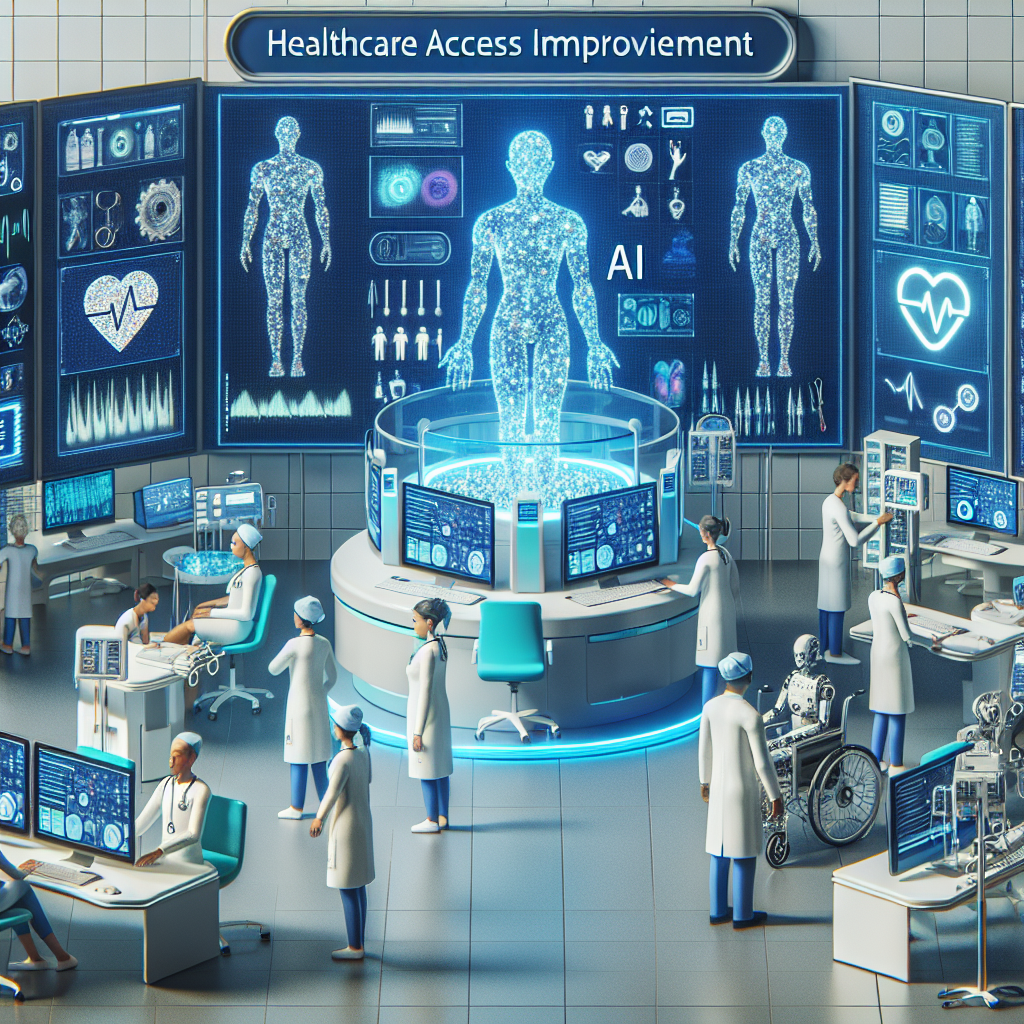Improving Healthcare Access with AI Solutions
In recent years, artificial intelligence (AI) has been making significant advancements in the healthcare industry, particularly in improving access to healthcare services. AI solutions have the potential to revolutionize the way healthcare is delivered by making it more efficient, cost-effective, and accessible to a larger population. In this article, we will explore how AI is being used to improve healthcare access and the benefits it brings to patients and healthcare providers.
AI Solutions for Healthcare Access
There are several ways in which AI is being used to improve healthcare access:
1. Telemedicine: AI-powered telemedicine platforms allow patients to consult with healthcare providers remotely, eliminating the need for in-person visits. This is especially beneficial for patients in rural or underserved areas who may not have easy access to healthcare facilities. AI algorithms can analyze patient data and provide recommendations to healthcare providers, improving the quality of care delivered remotely.
2. Virtual Health Assistants: AI-powered virtual health assistants can help patients schedule appointments, refill prescriptions, and access information about their health conditions. These assistants can also provide personalized health advice and reminders to patients, helping them manage their health more effectively.
3. Predictive Analytics: AI algorithms can analyze large amounts of healthcare data to identify patterns and predict healthcare outcomes. This can help healthcare providers identify high-risk patients and intervene early to prevent adverse health events. Predictive analytics can also help healthcare organizations optimize their resources and improve the efficiency of healthcare delivery.
4. Remote Monitoring: AI-powered remote monitoring devices can track patients’ vital signs and health metrics in real-time, allowing healthcare providers to monitor patients’ health status remotely. This is particularly useful for patients with chronic conditions who require regular monitoring but may not be able to visit a healthcare facility frequently.
5. Personalized Treatment Plans: AI algorithms can analyze patients’ genetic data, medical history, and lifestyle factors to create personalized treatment plans tailored to individual patients. This personalized approach to healthcare can improve treatment outcomes and reduce the risk of adverse events.
Benefits of AI Solutions for Healthcare Access
The use of AI solutions in healthcare has several benefits for patients, healthcare providers, and healthcare organizations:
1. Improved Access to Care: AI-powered telemedicine platforms and virtual health assistants make it easier for patients to access healthcare services, especially in remote or underserved areas. Patients can consult with healthcare providers from the comfort of their homes, reducing the need for in-person visits.
2. Enhanced Patient Engagement: AI-powered virtual health assistants can engage patients in their healthcare journey by providing personalized health advice, reminders, and support. This can improve patients’ adherence to treatment plans and help them better manage their health conditions.
3. Better Health Outcomes: AI algorithms can analyze large amounts of healthcare data to identify high-risk patients and provide personalized treatment plans. This personalized approach to healthcare can improve treatment outcomes and reduce the risk of adverse events.
4. Cost Savings: AI solutions can help healthcare organizations optimize their resources and improve the efficiency of healthcare delivery. By reducing the need for in-person visits and unnecessary tests, AI-powered telemedicine platforms and remote monitoring devices can help lower healthcare costs for patients and providers.
5. Faster Diagnosis and Treatment: AI algorithms can analyze patient data and provide recommendations to healthcare providers, leading to faster diagnosis and treatment. This can help patients receive timely care and improve their health outcomes.
FAQs
Q: Are AI solutions in healthcare secure and compliant with patient privacy regulations?
A: Yes, AI solutions in healthcare are designed to be secure and compliant with patient privacy regulations, such as the Health Insurance Portability and Accountability Act (HIPAA). Healthcare organizations using AI solutions must ensure that patient data is encrypted and protected from unauthorized access.
Q: How can patients access AI-powered healthcare services?
A: Patients can access AI-powered healthcare services through telemedicine platforms, virtual health assistants, and remote monitoring devices. These services are typically available through healthcare providers or healthcare organizations that have implemented AI solutions in their practices.
Q: Are AI solutions in healthcare affordable for patients?
A: The cost of AI-powered healthcare services may vary depending on the healthcare provider and the type of service offered. Some healthcare organizations may offer AI-powered services at no additional cost to patients, while others may charge a fee for using these services. Patients should check with their healthcare provider to determine the cost of AI-powered healthcare services.
In conclusion, AI solutions have the potential to improve healthcare access by making it more efficient, cost-effective, and personalized. By leveraging AI algorithms to analyze patient data, healthcare providers can deliver better care to patients, especially those in remote or underserved areas. The benefits of AI-powered healthcare services include improved access to care, enhanced patient engagement, better health outcomes, cost savings, and faster diagnosis and treatment. As AI continues to advance in the healthcare industry, we can expect to see even more innovative solutions that will further improve healthcare access for patients around the world.

